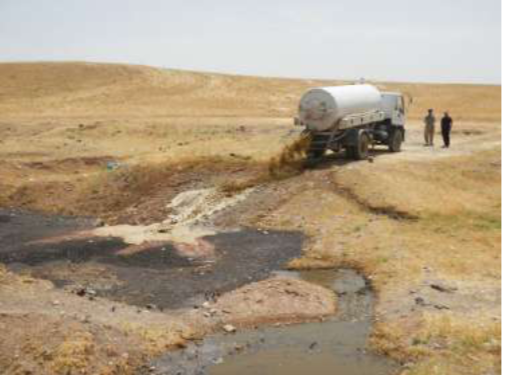Shaping the future: Our strategy for research and innovation in humanitarian response.

Shaping the future: Our strategy for research and innovation in humanitarian response.


Existing guidelines on emergency sanitation management insufficiently address the management of human waste and faecal sludge, including the treatment and safe disposal of waste. This is particularly true during the first phase of rapid onset emergencies.
Current guidance on emergency sanitation management focuses on latrine construction. It is limited in its consideration of safe emptying practices, transport, treatment and disposal of waste. It also fails to provide links between different technologies to indicate how they function together.
Click here to see what areas of sanitation system design are often missed in the emergency phase.
This research project aimed to contribute towards larger efforts to build credible evidence and increase understanding of the current proven sanitation solutions in the emergency context. It did this through two components which aimed to:
The findings of this research will inform the following actors working in WASH, regarding faecal sludge disposal options and selection of appropriate solutions in emergencies:
The research will inform the development of guidance, which will address the second component of the HIF challenge—dissemination. The intended audience and stakeholders for the final guidance document are humanitarian practitioners who plan, manage or are involved with supporting WASH responses.
BORDA investigated why few existing guidelines comply with the decision-making process of practitioners. They reviewed 57 guidelines on 8 different technologies for managing faecal sludge in emergencies. They also conducted an online survey with 93 responses, on current practices and sources of FSM decision-making with field practitioners. BORDA also held 14 semi-structured interviews with practitioners to understand their decision-making processes, needs and limitations in the field.
Click here to view a bar graph of findings on guideline access and contents.
The findings have been published in a report available online, and will be widely shared with the WASH community.
In collaboration with Solidaritiés International an online platform called OCTOPUS is being established. This platform will provide quick and easy access to guidance and support in decision making processes around FSM. The platform includes a peer-to-peer exchange and review function and will be launched in the near future.
Photo caption: Sludge being dumped into an open water body close to a community in the Kurdish Region of Iraq. Credit: BORDA

 Please upgrade your browser
Please upgrade your browser
You are seeing this because you are using a browser that is not supported. The Elrha website is built using modern technology and standards. We recommend upgrading your browser with one of the following to properly view our website:
Windows MacPlease note that this is not an exhaustive list of browsers. We also do not intend to recommend a particular manufacturer's browser over another's; only to suggest upgrading to a browser version that is compliant with current standards to give you the best and most secure browsing experience.